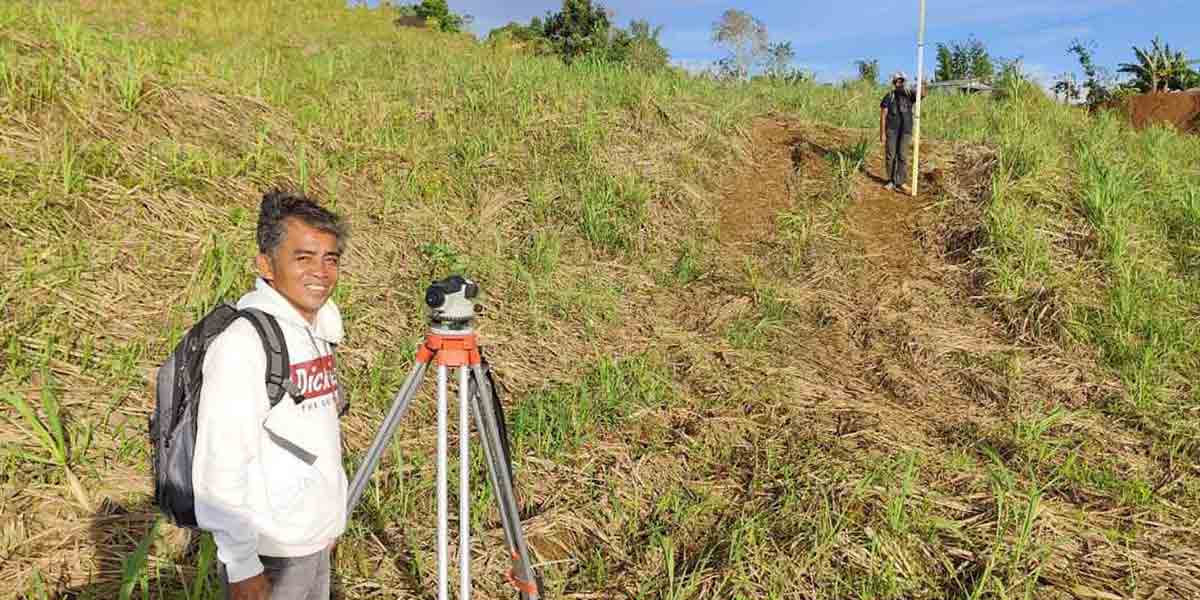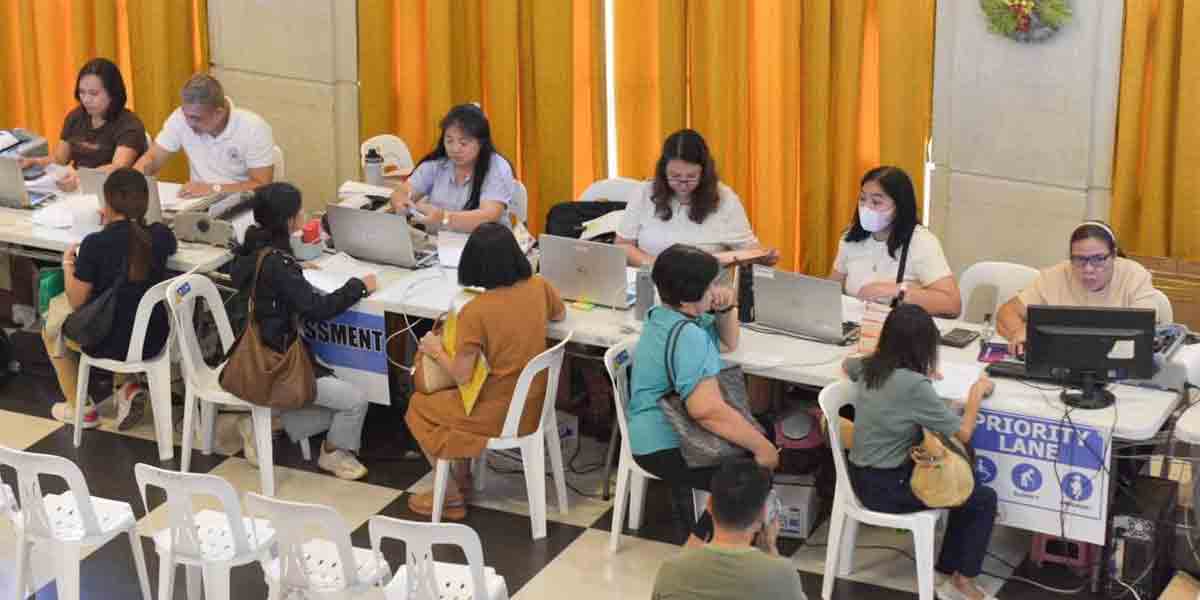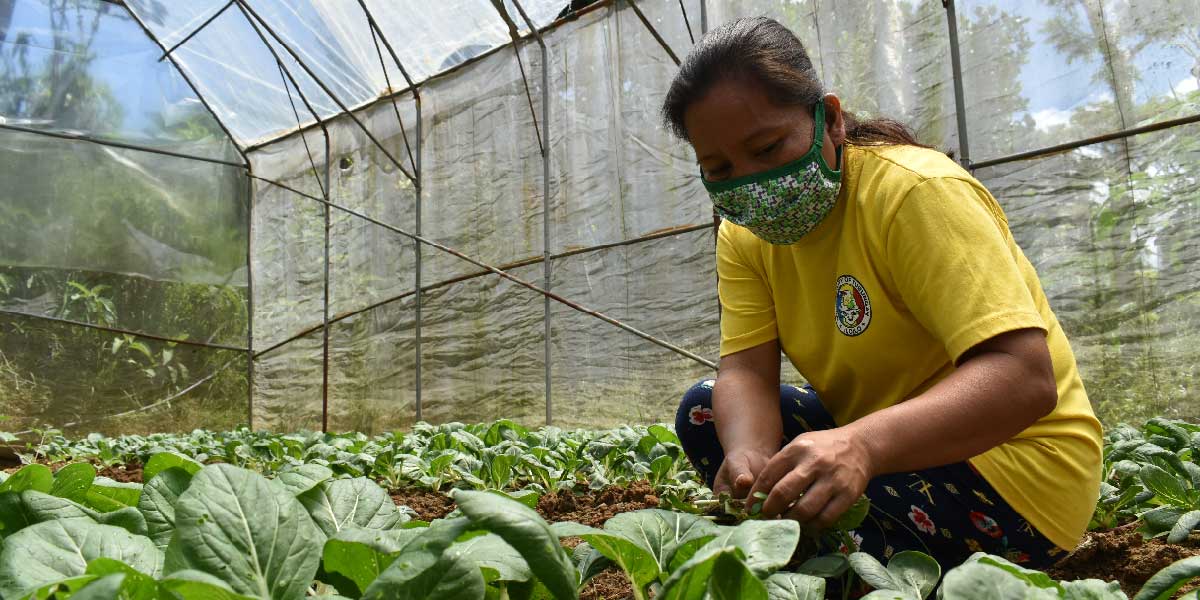
As consumers are getting more mindful about their health and diet, the preference for organically grown foods over crops treated with chemicals rapidly grows as time passes. Having to produce safe and quality crops and animals with lesser farm expenses and reduced threats to the environment prompts the farmers in a fourth-class town in Iloilo to champion organic agriculture.
“We value quality over quantity in our food production. Through organic farming, we could produce safe food to consume for a healthier and longer life. Second, we need to protect the environment. And as mandated in the Republic Act 10068, we should convert at least five percent of the agricultural areas into organic farms,” said Marjorie Tacardon, the municipal agriculturist of Tubungan.
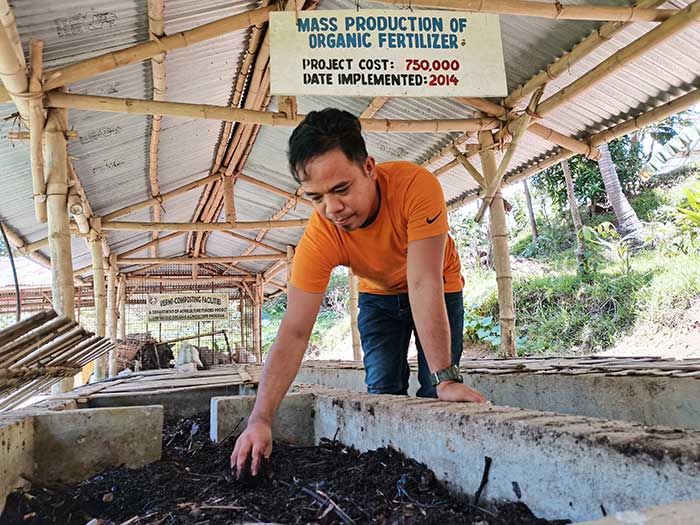
Emphasizing the need to gradually transform their areas to boost production of safe food and to avert further damage in the environment caused by the oblivious application of synthetic inputs, the Tubungan Vegetable Producers Association (TVPA) in Iloilo which initially had 45 members started to venture such precedent step since 2012. The DA’s training on Integrated Pest Management (IPM) had further ignited the farmers’ willingness to dodge chemical farming.
Association president Antonio Tadiaque shared “We grow vegetables, lettuce, pechay, black rice, livestock, and poultry animals organically in more than 100 hectares of farm areas in Tubungan by almost 200 local organic farming adopters.”
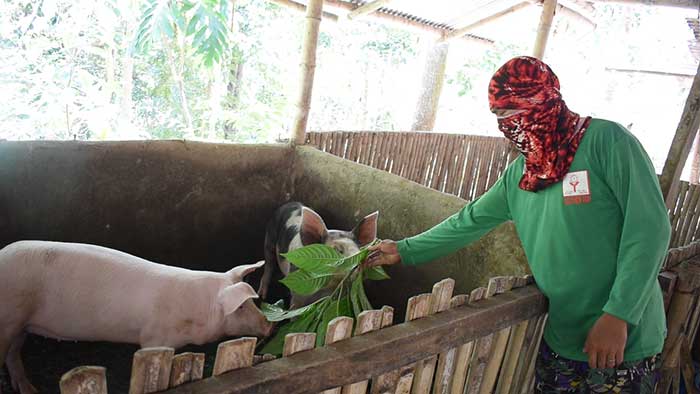
To sustain the agency’s efforts in persuading farmers to shift into organic practices, the local agri office in Tubungan led by former municipal agriculturist Ma. Asuncion Tabucuran broadened farmers’ grasp of technologies through the series of training, and had distributed farm inputs such as organic seeds and fertilizers to farmers and adopters.
“We also conducted Farmers Field School (FFS) on Organic Agriculture in the barangays of Tabat, Male, and San Jose. Each barangay was provided with 50 bags of bokashi fertilizer, vermicomposting facility, greenhouse, and power sprayers,” according to Tacardon.
The development of the 1.7-hectare Municipal Eco Park in Brgy. Bacan served as the gateway to demonstrate the different organic farming technologies and innovations for the farmers to replicate and adopt in their respective fields and backyard lots. Although the production volume of crops declined in the initial years of transition, the use of organic substitutes brings back soil nutrition to obtain optimum crop yield in the long run.
Several projects were proposed by the Municipal Agriculture Office in 2014 for funding by DA with the goal to advance their local organic agriculture endeavors. As a response, the agency’s Rice, Organic Agriculture, High Value Crops Development, and the Bottoms Up Budgeting (BuB) Programs put up the Farmers Learning Center, vermicomposting facilities, biological control laboratory, and greenhouses in Brgy. Bacan.
When Tubungan topped the National Search for Outstanding Organic Agriculture Municipality in 2015, they procured and established additional support facilities with a ₱6 million project prize from DA.
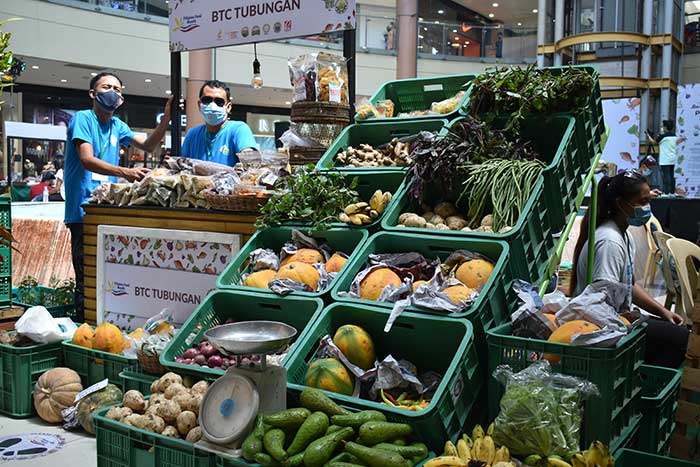
“We bought nine greenhouses, three cultivators, 25 drums for rainwater harvesting, and two units of wood vinegar facility,” shared Tacardon who was also the national champion in the 2016 search for outstanding agricultural extension worker (AEW) for organic agriculture.
Aside from growing crops, they are also raising hogs in the eco-park employing the ‘Baboyang Walang Amoy’, a cost-reducing technology highly suitable for backyard farming. Left-over vegetables and fruits displayed at the Municipal Food Depot are recycled and cooked as supplemental feeding for pigs.
Tubungan farmers’ receptiveness to innovations seemed unbounded that even Japan’s ‘Mokusaku’ or the wood vinegar technology was adopted to enhance their vegetable growing. The wood vinegar, as a dark liquid produced through the distillation of coconut wood and other materials, is being used as a soil conditioner, plant, and seed germination enhancer, and as a replacement for chemical fertilizer. The daily operation of the facility gives value to coconut wood and other farm wastes, thereby providing an additional income source to farmers. In an eight-hour daily operation, the facility could produce seven to nine liters of wood vinegar sold at ₱90 per liter as farmgate price and ₱100 per liter at the Municipal Food Depot.
“Aside from being used as a substitute to chemical fertilizer, the wood vinegar can also be applied to lengthen the shelf life of fruits after harvest. Our farmers here are also using this liquid as fungicide after it was proven effective against rice blast,” Tacardon added.
With the Biological Control Laboratory constructed in Tubungan, farmers can freely avail themselves of Biocon agents including Trichogramma which is known to be effective to control pests and insects attacking rice and vegetables. The presence of this facility prevents farmers from resorting to the use of harmful chemicals in managing pests and diseases.
Furthermore, the farmers training center became the venue for FFS, Technical Education and Skills Development Authority’s (TESDA) training for organic agriculture, and a learning site for high school students.
Partnering with the different elementary and secondary schools in Tubungan has been pivotal in the LGU’s thriving campaign for organic farming adoption.
“Whatever interventions we received from the DA are also imparted to other stakeholders. We provided planting materials, farm implements, shredder machines for vermicomposting, and cultivators to support the ‘Organikong Gulayan sa Paaralan’ program of 22 schools in Tubungan,” she went on.
The Municipal Food Depot functions as the consolidation and marketing hub for all organic products of Tubungan farmers and program partners.
From the ₱40,000.00 working capital extended by the LGU during the inception of the project, the Municipal Agriculture Office is now supplying vegetables and fruits to major malls and institutional buyers in Iloilo City. The TVPA together with the Male Farmers Association has been participating in several Kadiwa ni Ani at Kita markets of DA making pesticide-free crops more available to Iloilo consumers.
“Our farmers need not worry where and how to market their produce upon harvest. Our food depot guarantees them with a steady market for all their organically grown products. All they have to do is to boost their production to sustain the growing demands for safe and high-quality vegetables and fruits,” she added.
The delivery truck and van donated by the Korea International Cooperation Agency (KOICA) enable faster and more convenient transporting of farm products from the food depot to several markets in Iloilo. The town was selected as one of the beneficiaries of the KOICA and DA’s Panay Island Upland Sustainable Rural Development Project third phase that focused on accelerating the marketing system for highland commodities.
Under the Kadiwa Program of DA, the LGU Tubungan will be granted ₱1 million trading capital to jumpstart their palay and copra buying within the year. Tacardon also attributed their successful marketing ventures to the DA’s Agribusiness and Marketing Assistance Division for facilitating proper linkages, and assisting them on farm record keeping and basic accounting.
The LGU Tubungan has ongoing FFS on organic agriculture and is converting the barangays of Sto. Nino and Bato into additional organic agriculture zones. Banking on the proper labeling of organic products for improved saleability, the town is already preparing the necessary documents to apply for the Participatory Guarantee System, a locally-focused assurance certification for farmers as active practitioners of Organic Agriculture.
To intensify the benefits of their organic farming pursuits, the LGU Tubungan is constantly creating means to ease farmers’ plight on the spiking production costs, and low profitability. They are now venturing into off-season vegetable production and seed banking, intensifying their herbs cultivation, and proposing for the construction of a warehouse for their ‘pinawa’ rice mill. Value-adding of their surplus crops like camote into flour and other by-products is perceived as essential for farmers to gain a bigger return for their labor and resourcefulness.
“It is important that the Municipal Agriculture Office should present and lobby agricultural programs to gain support from their local chief executives. That is our biggest secret here in Tubungan. Ever since the previous administrations, we regularly consult our mayor on the projects and services that we need to implement to address the varied concerns of our farmers,” Tacardon emphasized.
Remarkably, Tubungan is at the forefront of organic farming development in the entire province of Iloilo. Such a feat was made possible because of the collective efforts of the LGU, farmers, consumers, and other key players in advocating fairness in food production, health, and environmental preservation. (Story by Sheila Mae H. Toreno/ Photos by J.V. DeGuzman/Department of Agriculture Western Visayas)






